The guilty secret of every diplomat in Washington DC
- Published
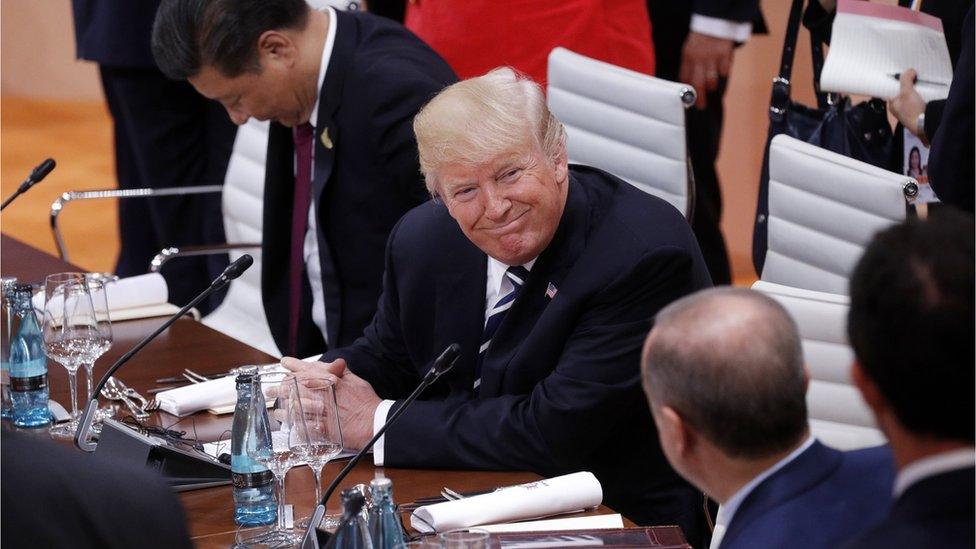
"Four minutes with him is worth hours of meeting with anybody else," one head of state said
It's tough being a diplomat when nobody talks to you. It's even worse when they aren't talking to you because they don't think you matter anymore.
When he was just a candidate, Donald Trump declared in his first major speech on the issue that "our foreign policy is a complete and total disaster". His solution was to replace it with a slogan: America First. What he hasn't replaced, now that he is president, are the people normally tasked with projecting America's power around the world.
"It can't be business as usual when the entire [upper] floor of the State Department is missing," one ambassador said.
Ambassadors in Washington are clueless these days, or rather clues are all they have, because, as this one was explaining to me, the usual avenues of diplomacy in the US capital have broken down. The same words were spoken by several ambassadors from across the globe that I've spoken to in DC recently.
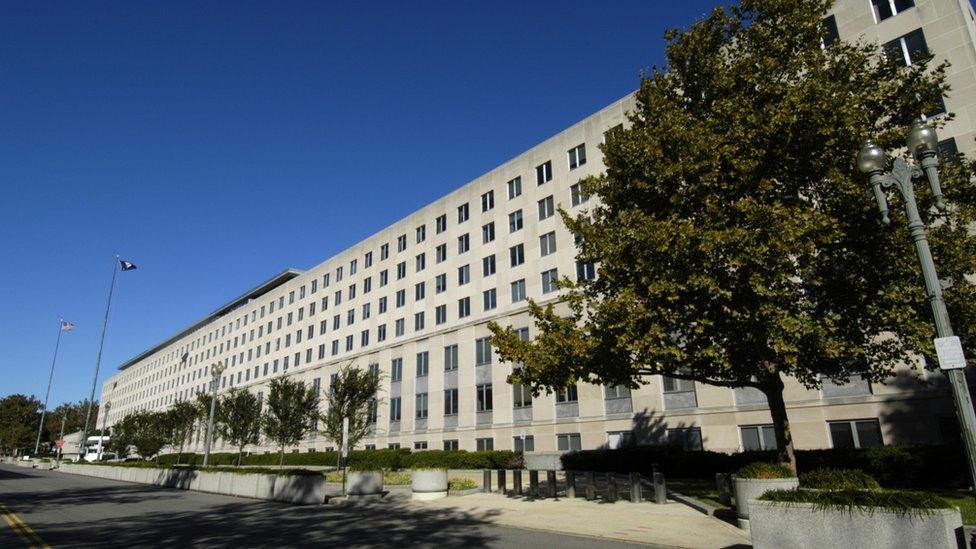
There are dozens of senior positions lying vacant at the Department of State
The "missing people" are the undersecretaries and assistant secretaries of state with whom all the diplomats in the US capital normally conduct their day-to-day operational business.
There are presently dozens of senior positions lying vacant. The people who are acting up in these roles, by their own admission, have no authority to take important decisions.
Unfortunately for them, Washington, DC, is a city where your status is entirely defined by your ability to influence others. So the city's embassies, representing US allies in Asia, Europe and Latin America, have told their staff to largely bypass the state department and look for other avenues to get their voices heard.
With a president widely viewed as being entirely un-ideological on all issues other than trade, face time is key.
"Four minutes with him is worth hours of meeting with anybody else," a visiting head of state told me recently. World leaders recognise transaction is the new diplomacy.
America isn't taking one for the team anymore, because President Trump isn't a team player. So diplomats make sure they go into their meetings with an idea that Mr Trump can claim as a victory.
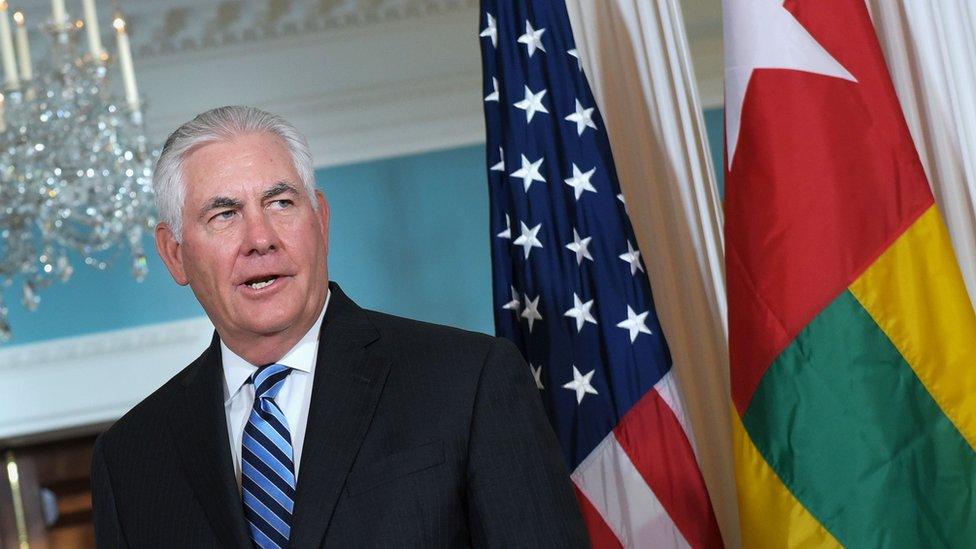
Secretary of State Rex Tillerson can't be everywhere at once
It must be structured, as one diplomat put it, "so he can say to people, 'we scored a win here,' because for him it's all about winning".
To make their case more effectively, America's allies are cloaking their own agendas in the president's language and priorities.
Complex political issues are boiled down as "fighting terrorism".
That's how the Saudi government played the president during his Middle East trip in May. The Saudis repackaged their long-simmering dispute with Qatar, over regional influence and the Muslim Brotherhood, as a battle against Islamist extremists.
Latin American leaders are recasting their "war on drugs'' as a "war on terrorism".
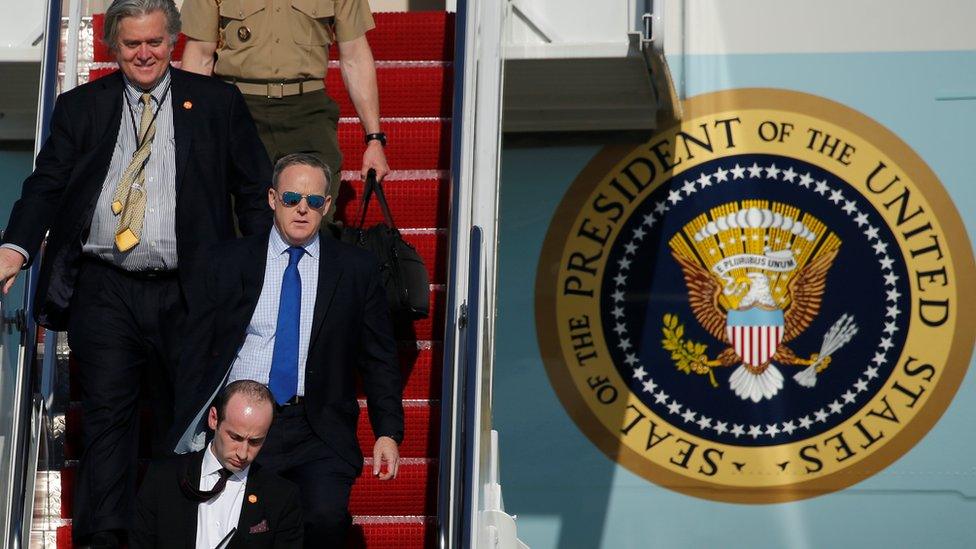
President Trump's top team say little publicly
On trade issues, countries make their pitch on the benefits to Mr Trump's support base and how much the people who voted for him will end up paying for stuff in the shops.
A Western diplomat said his team had decided there were three groups of people President Trump listens to. There is his inner circle of White House advisers containing people like Jared Kushner, the president's son-in-law; the former investment banker Gary Cohn; and Mr Trump's right-wing svengali Steve Bannon.
The second group is his cabinet, and their influence varies widely from person to person, reflected in the time they each get with him inside the Oval Office.
The third group is his pre-presidency contacts from New York, and the property and media industries.
So foreign diplomats try to talk to as many people in this group of interlocking circles as they can, in the hope that if these people see the merit in their case, they will convey it to the president. And if the president hears that view enough times, he will believe it.
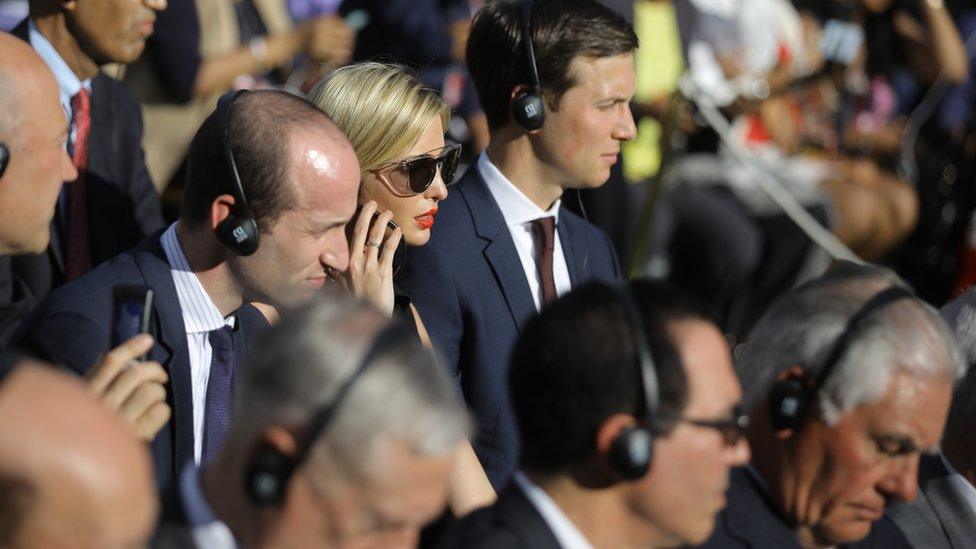
Diplomacy in Washington has been reduced to a modern day version of Kremlinology
However, after laying out this elaborate strategy, the Western diplomat confessed, "but then there are those who say the most important thing is to be the last person to talk to him before he makes a decision".
Diplomacy in Washington has been reduced to a modern-day version of Kremlinology, where each individual policy outcome is used to measure the influence of the people arguing for or against it.
From that is determined who is up and who is down and who is therefore important to influence.
The guilty secret of every ambassador in DC is that the first thing they do in the morning is check the president's Twitter feed. That is now the best, perhaps it's the only, way to work out what is going on with US foreign policy.
And while the White House press corps have derided Mr Trump's Twitter diplomacy, some of his allies have a grudging respect for it.
"An awful lot of politicians around the world are watching this and thinking, 'Can I learn from it?' because it's been astonishingly successful," one diplomat told me.
"This is a guy who had never run for public office anywhere and the first time he runs, he gets the biggest job on the planet. So he did something right."